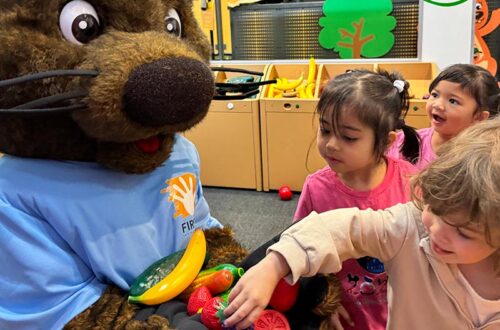Tips for Supporting Distance Learning
By Nicole M. Young, MSW
 When I was in college, I would not have enjoyed living and learning at my parents’ house. Even when I was in high school, I would’ve been miserable if all my classes were online since school was my social lifeline. Now, my house is a home/office/high school/college campus for two working parents, two students, two cats, and a never-ending pile of dirty dishes and laundry. I’m fortunate that my kids don’t need constant supervision, and they’ve learned to manage their own schedules and schoolwork. If you read my articles from several years ago, you’d know this was not always the case! This month’s article is for everyone who is juggling work, family, and distance learning. Stay strong!
When I was in college, I would not have enjoyed living and learning at my parents’ house. Even when I was in high school, I would’ve been miserable if all my classes were online since school was my social lifeline. Now, my house is a home/office/high school/college campus for two working parents, two students, two cats, and a never-ending pile of dirty dishes and laundry. I’m fortunate that my kids don’t need constant supervision, and they’ve learned to manage their own schedules and schoolwork. If you read my articles from several years ago, you’d know this was not always the case! This month’s article is for everyone who is juggling work, family, and distance learning. Stay strong!
This monthly column provides tips for raising children, based on the world-renowned Triple P – Positive Parenting Program, available to families in Santa Cruz County. If you have a question or idea for a future column, please email me at [email protected].
Dear Nicole,
This school year is so stressful. My kids (5, 8, and 15 years old) are doing distance learning, and it’s so hard! They get bored, distracted, and take forever to do their schoolwork. I work during the day, and my husband works at night. We take turns watching the kids, but we’re totally overwhelmed. What can we do?
– Susannah
Dear Susannah,
So many families are experiencing this! Here are some tips to try:
Be gentle with yourselves.
Having realistic expectations (of both children and parents) is a key principle of positive parenting. Although parents and caregivers have more responsibility for their kids’ learning at home, most aren’t trained (or expected) to be teachers – and many don’t even understand what their kids are learning! So, start by saying positive, calming statements like, “We’re doing the best we can,” “There isn’t one ‘right’ way to parent,” or “We’ll get through this together.” And remember to breathe.
Involve your kids in creating daily routines and family rules.
Look at the space they each use for distance learning (even if it’s a shared desk or table) and identify what they can do to make it more special, interesting, or unique to them. They might want to do this periodically to keep their learning space interesting and engaging.
Follow a consistent routine as much as possible.
Most schools have a daily schedule for live instruction and individual work time. Have your kids follow the routine as though they’re going to school on campus – i.e. get up, eat breakfast, get dressed, brush teeth, log into class on time, etc. Some kids find it helpful to have their schedule written or printed so they have a visual reminder of what each day looks like, including classes, breaks (very important!), due dates for assignments, mealtimes, playtime, homework time, bedtime, etc.
If your kids need to share devices or take turns being online, involve them in creating agreements about how they’ll do that.
Talk about family and school rules about online learning, like being respectful, responsible, and using the devices appropriately. This is also a good time to create or update family rules about when it’s learning time (vs free time), when it’s OK to interrupt a parent (vs when they need to wait), and how much recreational screen time they can have (separate from school-related screen time).
Offer “just enough” help.
Stay close by and check on their progress but avoid nagging them (giving too many reminders) or doing work for them. Give descriptive praise and encourage their efforts – “You finished two assignments already. Keep it up!”
If they want help, ask questions that teach problem-solving, such as “What do you think?” or “How could you find out?” If they can’t answer after a couple prompts, help them find the answer so they stay engaged in the learning process instead of giving up.
If they’re overwhelmed by the amount of schoolwork, help them break it down into smaller “chunks” that feel more manageable. Let them have a small reward after finishing each chunk, like playing a short game or listening to a song. When they’ve finished their schoolwork for the day, let them do something they enjoy so they experience the reward of free time after working hard.
Final Thoughts
Distance learning is challenging for everyone, so we all have to do the best we can and support each other. If your kids are struggling with learning at home, reach out to their teachers and ask what resources and supports the school can provide to your kids – and to you.
Nicole Young is the mother of two children, ages 16 and 20, who also manages Santa Cruz County’s Triple P – Positive Parenting Program, the world’s leading positive parenting program. Scientifically proven, Triple P is made available locally by First 5 Santa Cruz County, the Santa Cruz County Health Services Agency (Mental Health Services Act) and the Santa Cruz County Human Services Department. To find a Triple P parenting class or practitioner, triplep.first5scc.org, facebook.com/triplepscc or contact First 5 Santa Cruz County at 465-2217 or [email protected].







